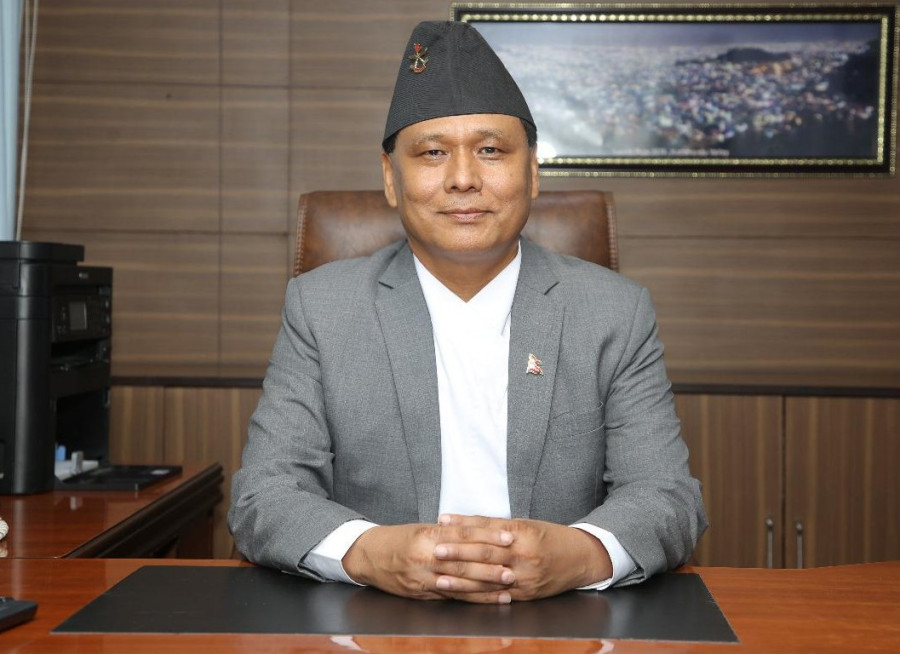Politics
Rastriya Swatantra Party, Kulman Ghising visit Nepali diaspora. Elections in mind
RSP’s 2022 success is credited to Nepalis abroad, who influenced their families back home.
Purushottam Poudel
Even with over two years to go before the 2027 general elections, the Rastriya Swatantra Party has started reaching out to the country’s vast migrant population scattered around the world.
The foreign tour of former Nepal Electricity Authority (NEA) executive director Kulman Ghising, driven by a purported political goal, and the recent outreach of RSP leaders are viewed as their efforts to woo the Nepali diaspora for electoral gains. Nepalis living overseas still lack voting rights but are thought to influence their relatives back home to vote for their favourite party.
Analysts say such visits, often framed as diaspora engagement, are thinly veiled attempts to influence domestic voters through emotional ties and financial mobilisation.
After a prolonged tussle, the incumbent government led by CPN-UML chair KP Sharma Oli sacked NEA chief Ghising on March 24. Ghising then moved the Supreme Court but was denied an interim order to reinstate him.
Ghising is credited with streamlining electricity distribution and gradually ensuring uninterrupted supply after he became the NEA chief in 2015 amid load-shedding lasting up to 16 hours daily. Many Nepalis treat him as a hero. This, experts say, might prompt him to take a plunge into politics.
When the Oli government dismissed him four months before his tenure ended, hundreds of supporters staged protests in Kathmandu against the decision.
A source close to Ghising said that though he is sure to enter politics, it’s unclear if he will join an existing political party or launch his own.
“I don’t think he has made up his mind on this,” the source added.
Constitutional expert Bipin Adhikari, writing on the social media platform X, suggested that Ghising should not open a new political party as it would be a lengthy process, one that could drain his energy.
“It is not advisable to establish a new political party to enter politics. The process of setting up a party demands significant time and resources, which can drain your energy and focus away from your immediate priorities,” Adhikari wrote.
Ghising, after a tour of West Asian countries under the ‘Ujyalo Nepal’ (Bright Nepal) campaign, returned to Kathmandu on Monday. Ghising is said to have sought the support of the Nepali diaspora. Hundreds of thousands of Nepali migrant workers are in the region for employment.
According to the itinerary shared by Ghising on social media, he visited Bahrain from July 2 to 4. From July 5 to 8, he was in the UAE, followed by Oman from July 9 to 10 and Qatar from July 11 to 13.
In this time, he interacted with Nepali migrant workers in these countries. He arrived home from Qatar, where Ramesh Bhatt, president of the Non-Resident Nepali Association (NRNA), saw him off at the Hamad International Airport.
During his tour, Ghising was welcomed and honoured by Nepali embassies and well-established West Asian organisations. Many migrant workers shared their grievances with him. He addressed the ‘Ujyalo Dialogue Programme 2025’ in Qatar, jointly organised by the NRNA National Coordination Council Qatar and the Nepal Federation of Indigenous Nationalities.
Ghising criticised the Nepali government for disrespecting citizens living abroad, despite their big contribution to the national economy through remittances.
But Ghising told the Post that he has no immediate plans to form a political party or join an existing one.
“I went to West Asia simply to understand the concerns of my fellow Nepali brothers and sisters during my free time. There is no other reason,” Ghising told The Post.
The Election Commission has time and again recommended that Nepali citizens abroad be allowed to exercise their voting rights. On March 21, 2018, the Supreme Court issued an order in the name of the commission and the government to guarantee the voting rights of all Nepali citizens living abroad.
Implementing the verdict was expected to enable millions of Nepalis living in different parts of the globe for employment, study and diplomatic assignments to exercise their adult franchise.
However, the decision has yet to be implemented.
The RSP leaders have consistently been making such foreign trips. Established in 2022, the party quickly rose to national prominence, becoming the fourth-largest in Parliament within a short time.
Recently, the party’s acting president, DP Aryal, participated in a similar event organised by the RSP UAE chapter in Dubai. Other party leaders have travelled to countries ranging from India to the United States to interact with Nepalis living there.
Aryal said he is unsure why other parties and individuals travel to countries where Nepalis work, but the RSP leaders do as Nepalis living abroad invite them for vital conversations.
“Our party has diaspora coordination offices in 28 countries, with plans to establish such offices in 10 more countries. We travel not only to countries in West Asia but also to other parts of the world for discussions and interactions,” Aryal told the Post.
Again, political experts argue that such visits are being carried out with the intent of influencing future elections. They believe that as many Nepalis living abroad may not be able to return home for the 2027 elections, these visits are aimed more at getting these migrants to influence their friends and families back in Nepal to vote for certain parties.
The results of the 2022 elections also indicate that Nepalis living abroad played a big role in the RSP’s success.
Mina Paudel, who has extensively researched Nepali migration, agrees with and says the RSP leaders’ visits are clearly election-oriented.
“This is amply evident in my interactions with party leaders as well as Nepali migrant workers abroad,” she said.




 13.12°C Kathmandu
13.12°C Kathmandu















